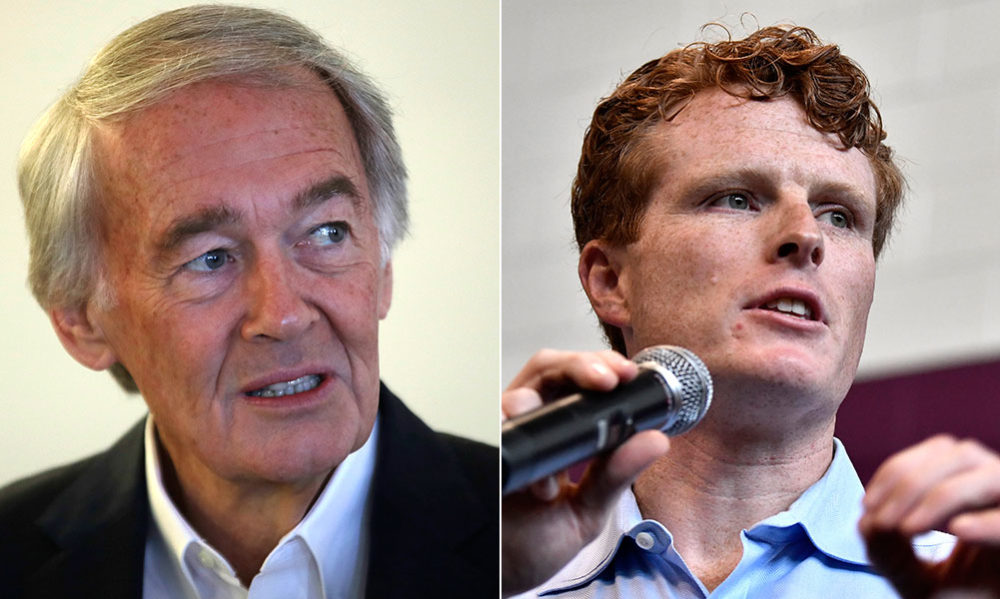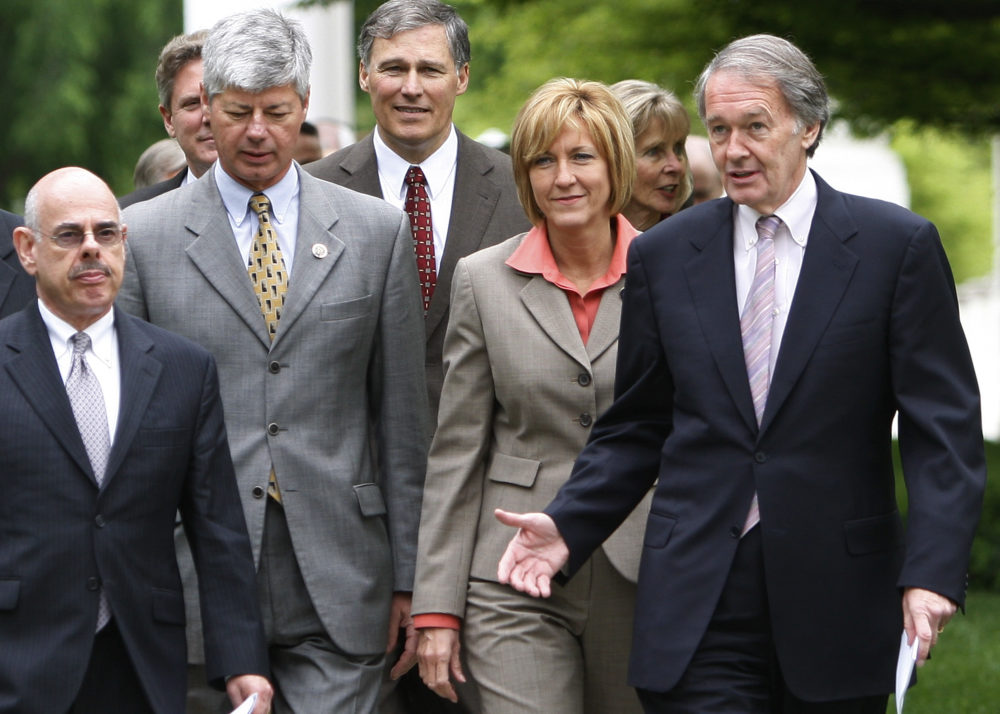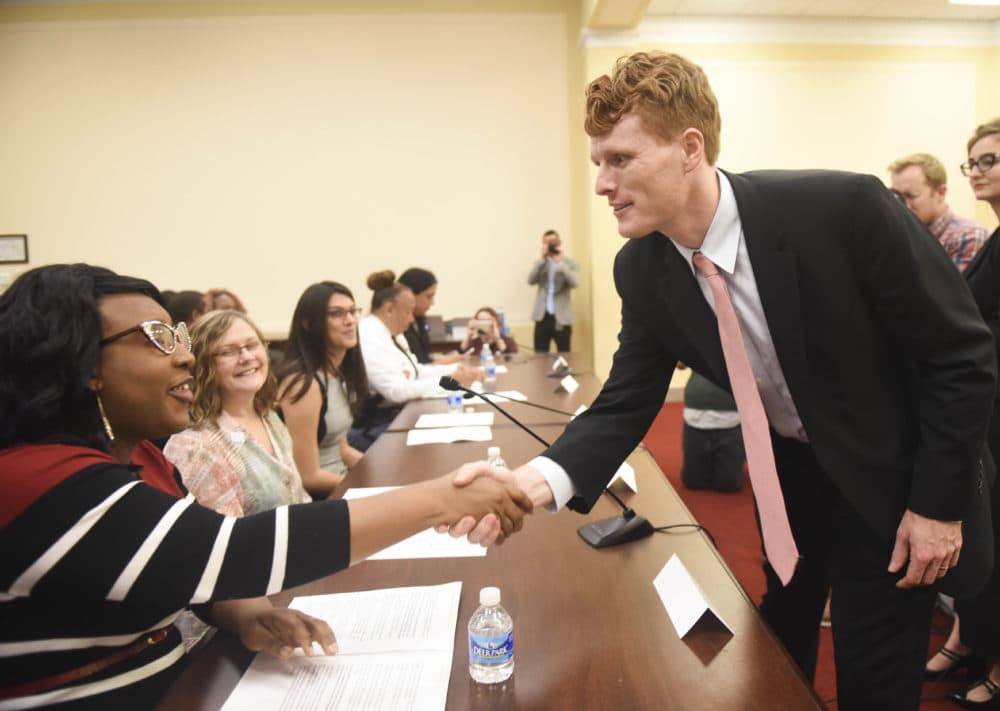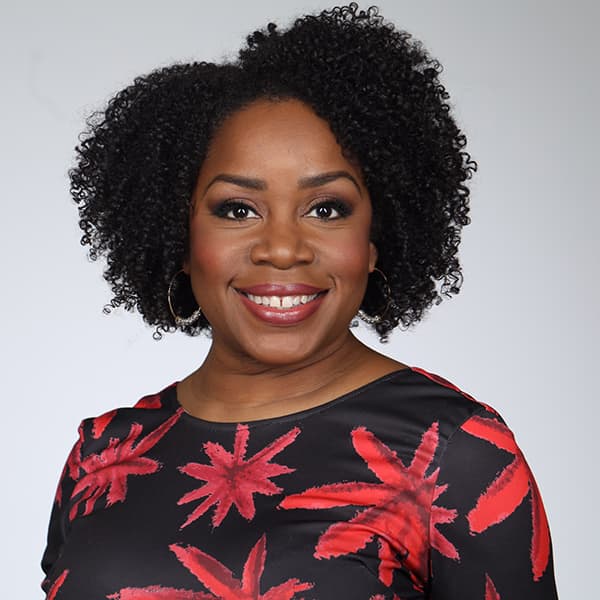Advertisement
Here Are The Issues Markey And Kennedy Have Focused On In D.C.
Resume
The Democratic U.S. Senate primary in Massachusetts may be among the most closely watched and expensive Senate battles of 2020.
But the two Washington lawmakers in the race — Sen. Ed Markey and challenger Rep. Joe Kennedy III — have focused far more on policy than on political positioning, according to those who know and have worked with them.
"Both Markey and Kennedy are workhorses," said Jeffrey Berry, a political science professor at Tufts University. "There’s a slogan in Congress that you’re either a workhorse or a show horse, and they are both in the former category."
Markey Described As A Dean Of Climate, Tech And Nuclear Policy
Markey has earned a reputation as a progressive wonk, whose long career has been more about putting his policy expertise to work than grabbing the spotlight.
Elected to the House in 1976, Markey emerged as a key force in the Reagan-era nuclear arms freeze movement, filing a bipartisan resolution and elevating the profile of anti-nuclear activists.
“Markey stuck with the issue over the next 20, 30 years,” said David Meyer, a sociology professor at the University of California Irvine, who met Markey when he was a grad student working on a dissertation on the nuclear weapons freeze movement.
Markey co-sponsored bipartisan nuclear freeze legislation at a time that the issue was garnering enough attention to draw hundreds of thousands of protesters to New York City’s Central Park, where Markey spoke.
Even after that spotlight faded, Markey’s focus in Congress did not.
“He kept working on the issue even when there wasn’t a movement there,” Meyer said.
Decades later, when President Trump began a heated Twitter war with North Korea’s Kim Jong Un over Pyongyang's nuclear program — and later held an unprecedented bilateral meeting with Kim — Markey led a call for legislation limiting the White House’s ability to unilaterally launch a nuclear strike, coupled with a more muscular yet careful diplomatic approach.
When Trump’s 2018 meeting with Kim in Singapore ended without a pact permanently halting the country’s nuclear program, Markey spoke on the Senate floor.
"As it turns out, negotiating with North Korea is harder than the president thought," he said. "So we must continue to squeeze the regime so that it cannot access the resources necessary to maintain or expand its military capabilities."

Markey’s legislative work on other issues followed the same approach, according to experts and advocates.
On net neutrality, “in the United States Congress, there is probably no one who knows the telecom market, with the same detail of the history of competition, more than Ed Markey at this point,” said Ernesto Omar Falcon, senior legislative counsel for the Electronic Frontier Foundation. “Most members of Congress are new and kind of have to be educated.”
Even Markey’s Green New Deal bill, filed earlier this year along with co-sponsor Rep. Alexandria Ocasio-Cortez of New York, has its roots in Markey’s work on energy and environmental bills dating back to the 1980s.
In 2009, as chair of the House Energy and Power Subcommittee, Markey coauthored the Waxman-Markey bill -- so-called cap-and-trade legislation — seeking to set limits on greenhouse gas emissions. It passed the House but never got a vote in the Senate.
Markey also led the congressional investigation into the 2010 BP Deepwater Horizon oil spill disaster.
In introducing the Green New Deal, Markey said the movement is stronger now to pass sweeping climate legislation than a decade ago.
"We now have the troops, we now have the money, we’re ready to fight," he said, standing next to Ocasio-Cortez outside the Capitol in February.
Markey has made his environmental work a centerpiece of his Senate campaign, challenging Kennedy and the other candidates to take part in a climate-focused debate. Kennedy has agreed, but the campaigns are still negotiating when that debate will take place.
The work, Tufts' Berry said, is belied by Markey’s “plain exterior.”
“He has not effectively communicated how central a role he’s played in lot of major legislative bills that have eventually been enacted into law,” Berry said.
Low-Profile Kennedy Focused On Health Care, Immigration, Equality Issues
Kennedy’s arrival in the House in 2013 marked the end of a two-year absence of Kennedys on Capitol Hill after his first cousin once-removed, Rep. Patrick Kennedy of Rhode Island, left.
But those expecting the Newton Democrat to have a lion-like presence in the vein of his late great-uncle Sen. Edward Kennedy were proven wrong.
Jim Manley, Democratic strategist and Capitol Hill veteran who worked for both former Senate Majority Leader Harry Reid of Nevada and Ted Kennedy, said Joe Kennedy has taken a much lower profile approach, eschewing titles and proverbial megaphones, and instead focused on drafting legislation on issues like mental health parity, immigration issues and LGBTQ rights, and finding the vehicles through which to get them passed.
“He went to Congress, kept his head down, and studied his briefing book,” Manley said. “He’s largely stayed away from press conferences and works hard.”

Just over a year into his first term, Democratic leadership approached Kennedy with an offer to chair the Democratic Congressional Campaign Committee, the party's House campaign arm. It's a position, once held by his cousin Patrick, focused heavily on fundraising and high-profile appearances. Kennedy turned it down.
"Congressman Kennedy was very intent on proving that he was in Congress because of his skill and dedication to the district, and he wasn’t there just to be a show horse," Tufts' Berry said.
Kennedy has not ignored his family roots altogether. In March 2017, the day Trump's immigration entry ban was set to go into effect, Kennedy made a speech on the House floor describing an immigrant family who fled their homeland to come to America. Despite the obstacles and discrimination they faced, he said, they were able to work hard and attain the American dream.
"I am sure that there are Garcias or Askaris or Rodriguezes who share that same story," Kennedy said. "But the one I tell is not theirs. This family’s name is Kennedy — struggling immigrants whose quest for a better life took them from Ireland’s potato famine to Boston’s immigrant barrios."
Immigration has remained a key focus. Kennedy has made several visits to detention facilities at the southern border and co-sponsored legislation to end the Trump administration's family separation policy. He also focused on LGBTQ equality issues, and heads the Congressional Transgender Equality Task Force.
But in the year leading up to his Senate bid he's taken a higher profile, most notably delivering the Democrats' response to Trump's 2018 State of the Union address.
Berry said Kennedy's desire to move to Congress' upper chamber could be as much about his desire to make a legislative impact as political ambition.
In the days leading up to the launch of his Senate campaign, he's proposed a number of structural changes, including ending the Senate's legislative filibuster, imposing term limits on Supreme Court justices, and eliminating the Electoral College.
"In the House, he is one of 435," Berry said. "He would have more of an impact as a junior senator."
This segment aired on October 7, 2019.
